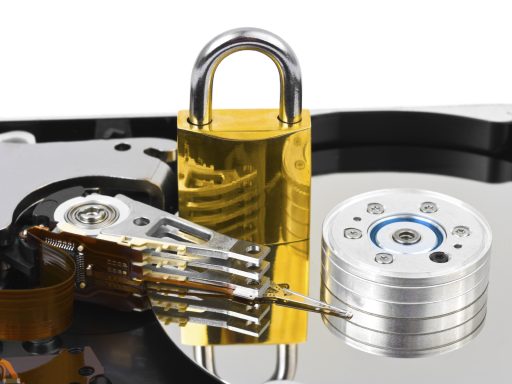Gift card scam
Only scammers will tell you to buy a gift card and give them the numbers from the back of the card.
No real business or government agency will ever tell you to buy a gift card to pay them. If you gave a gift card to a scammer—no matter how long ago the scam happened—report it to the gift card company.
Businesses and government agencies will never ask you to purchase gift cards for payments. Never give the number on the back of a gift card to anyone you don’t know.
Accidental deposit scam
Scammers will send you funds then contact you stating the funds were accidentally sent. They’ll then request you to send the funds back through Zelle® or other payment services. Most times the funds were sent to you from stolen credit cards or hacked accounts of other victims. Once scammers receive the funds back from you, they’ll dispute the payment with their bank resulting in duplicate withdrawals. Don’t send the money back or spend it—instead, contact your bank to report the activity.
Goods & services scam
Scammers pose as buyers or sellers who set up fake websites or profiles offering products and services, sometimes at prices that are too good to be true.
They may post fake ads and fake reviews. Always check that you are paying someone you know or a verified business, as there is no purchase protection if you buy goods or services with Zelle®.
Never pay with cryptocurrency, wire transfer services, payment apps or gift cards.
4 Tips to protect yourself
- GOi LeLe, or any other financial institution, will never ask you to make payments for correcting fraud activity.
- Never send money to anyone who claims your account is compromised or who threatens to cut off your services. Instead, call the company directly to discuss payment methods. A utility company will never request payments via Zelle®.
- Be suspicious of people you don’t know contacting you via phone or text asking for payment. These scams aim to create a false sense of urgency in hopes you’ll send funds before verifying who you’re talking to. Make sure you’re sending payments to reputable companies and contacts you’ve validated from a trusted source.
- Report any suspicious activity immediately by calling the phone number GOi LeLe or by visiting our Report Fraud page.
Banked and Underbanked
Choosing the right financial institution is very important when opening a checking or savings account.
Most U.S. households are "banked", meaning they have either a checking or a savings account with an FDIC insured financial institution.
An "underbanked" person is someone that does not have a checking or savings account with an FDIC insured institution, instead they use alternative financial services.
Start your financial journey
Ready to take a big step toward your financial goals? A bank account can be your best ally. It keeps your money safe, gives you quick access to your funds, saves you money on fees, and brings financial peace of mind.
Keep your money safe
Pay bills easily
Build your financial reputation
Save time and bank anywhere
Protect your money from error or fraud
Peer to Peer Payment Apps
Peer to peer payment apps (P2P) are digital payments between individuals via mobile banking. The funds are transferred directly from one person’s bank account, checking account, credit or debit card, or payment app to another person’s bank account or app.
Consumer advisory: Your money is at greater risk when you hold it in a payment app, instead of moving it to an account with deposit insurance.
Money stored in nonbank payment apps often is not protected by federal deposit insurance.
If a payment app’s business fails, what happens next is often unclear
Some apps offer “pass-through” insurance, if you take additional steps.
Tip: Send yourself a reminder to move your money from the app to your insured account
Tip:
Send yourself a reminder to move your money from the app to your insured account – or share it with a friend or family member.
Cybersecurity and Identity Theft Prevention
The practice of protecting systems, networks, and programs from digital attacks.
The steps taken to prevent scammers from obtaining one's personal or financial information to commit fraud.
Tips for identity theft prevention
- Monitor credit reports & freeze cards upon noticing suspicious activity.
- Create strong and different passwords for accounts.
- Utilize two-step factor authentication.
- Shred documents that contain personal information.
- Be careful sharing personal information on social media.
- Download and use antivirus protection software.
- The Internet Crime Complaint Center (IC3) is the central hub for reporting cyber-enabled crime. It is run by the FBI, the lead federal agency for investigating crime.
Don’t fall for these common scams
Get tips on avoiding scams, fraud and much more with a free, self-paced online course made possible through KHAN ACADEMY®
Question any appealing investment offers that guarantee huge returns. Before sending any money, look up the business at trustworthy resources online to verify if it’s legitimate.

News, Events, and Presentations
Department of Finance Joins $80 Million Enforcement Action Against Block, Inc., Cash App for BSA/AML Violations.
More than 50 million consumers in the United States use Cash App, Block’s mobile payment service, to spend, send, store, and invest money.
Global Fintech Leaders Highlight the Need for New Cybercrime & Digital Innovation Strategies at Financial Innovation Lab Conference.
Identify potential strategies and solutions for enabling digital financial innovation to thrive, while also protecting against the growing threat of cybercrime.
Digital Assets are anything digital that have value, ownership, and are discoverable.
These links below include photos, videos, documents.
How Money Smart Are You?
Learn about everyday financial topics.
How Money Smart Are You? is a suite of 14 games and related resources about everyday financial topics. It’s based on FDIC’s award-winning Money Smart program.

Want to learn more,
join our training program
© 2024-2025 Goi LeLe LLC Copyright. NMLS ID# 2677558. All rights reserved.
We need your consent to load the translations
We use a third-party service to translate the website content that may collect data about your activity. Please review the details in the privacy policy and accept the service to view the translations.




